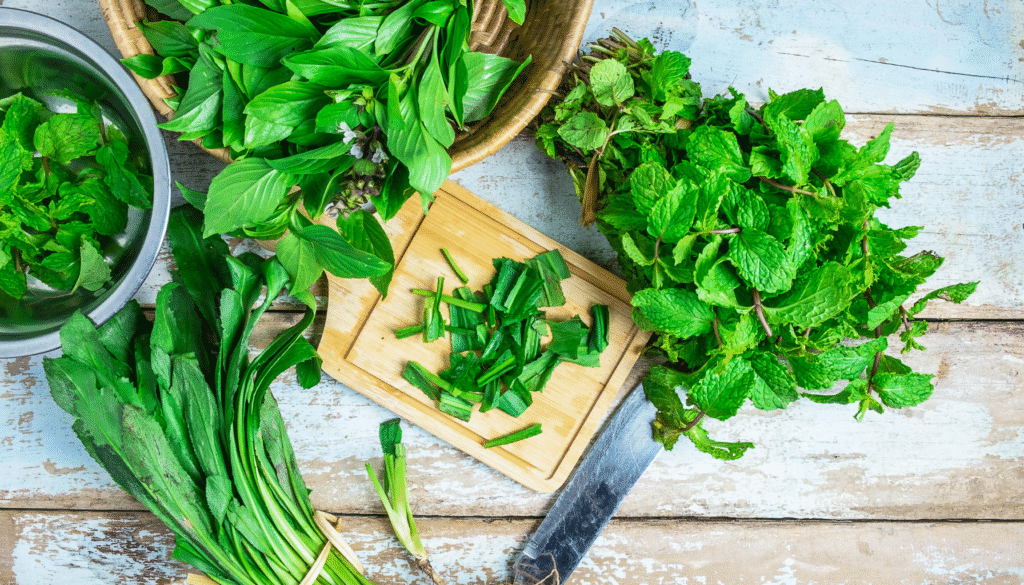Growing herbs at home is one of the simplest, most affordable, and rewarding ways to add more health and flavor to your daily life. In addition to decorating your space with a green touch, herbs are versatile in the kitchen and offer many health benefits. Even if you have limited space, you can grow herbs in pots, planters, or even reused bottles.
In this article, you’ll discover the best herbs to grow at home, how to care for them, and why you should start today!
1. Basil
Best for: seasoning sauces, salads, pasta, and pizza.
Benefits: anti-inflammatory, antioxidant, and digestive properties.
Basil loves sunlight and needs regular watering. Harvest the larger leaves and leave the buds so the plant can keep growing strong.
2. Mint
Best for: teas, juices, desserts, and drinks.
Benefits: relieves cramps, aids digestion, and freshens breath.
Mint grows fast and spreads easily, so it’s best to plant it in a separate pot. It likes partial shade and frequent watering.
3. Rosemary
Best for: meats, potatoes, bread, and infused oils.
Benefits: improves memory, has a relaxing effect, and antimicrobial properties.
Rosemary is resilient and does well in dry climates. Avoid overwatering—it prefers drier soil.
4. Parsley
Best for: garnishing dishes, salads, soups, and sauces.
Benefits: rich in vitamins A, C, and K, and helps reduce water retention.
Loves full sun and needs moderate watering. Cut stems often to encourage more growth.
5. Chives
Best for: sautés, omelets, broths, and rice.
Benefits: boosts the immune system and is rich in antioxidants.
Can be grown alongside parsley (they’re a perfect kitchen combo!). Grows well in bright areas with moist soil.
6. Cilantro (Coriander)
Best for: traditional Latin dishes, fish, stews, and salads.
Benefits: fights inflammation, aids digestion, and has a detox effect.
Though some love it and others hate it, cilantro grows quickly. It prefers direct sun and frequent watering.
7. Thyme
Best for: marinades, roasts, sauces, and cheeses.
Benefits: has expectorant, antibacterial, and digestive properties.
Thyme loves sun and doesn’t need much water, making it perfect for those with little time to care for plants.
Tips for Successfully Growing Herbs:
- 🌞 Choose a spot with plenty of natural light. Most herbs need at least 4 hours of sun daily.
- 💧 Don’t overwater. Soggy soil can rot the roots.
- 🍃 Harvest often. This keeps your herbs growing strong.
- 🌿 Use pots with drainage holes. Proper drainage is essential.
- 🪴 Fertilize from time to time. It keeps your herbs healthy and productive.
Conclusion
Having a small herb garden at home is a practical way to eat better, save money, and reconnect with nature. Start with your favorite herbs and try new ones over time. The process is simple, the results are flavorful—and your well-being will thank you!
Let me know if you’d like a blog-formatted version of this for Luvivihestore, or if you want me to SEO-optimize the post!



